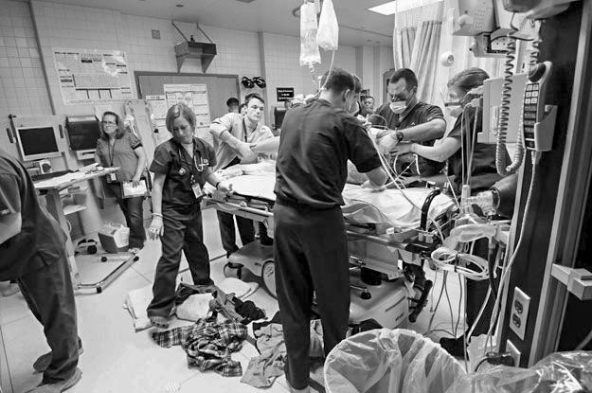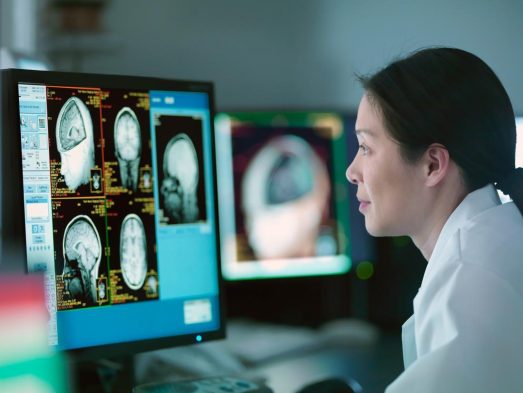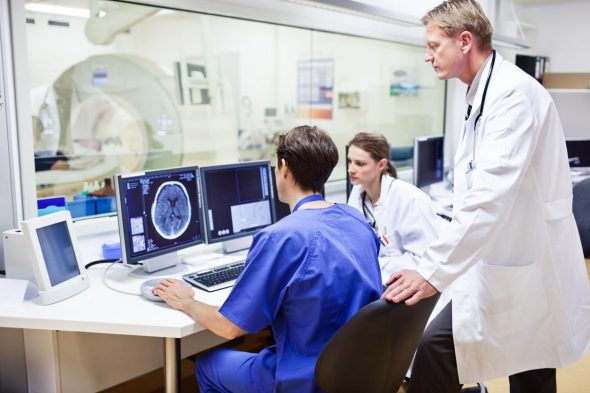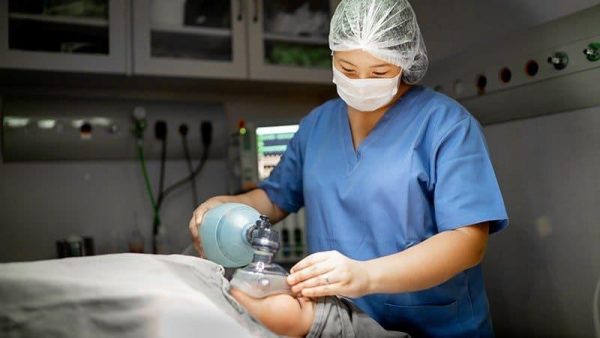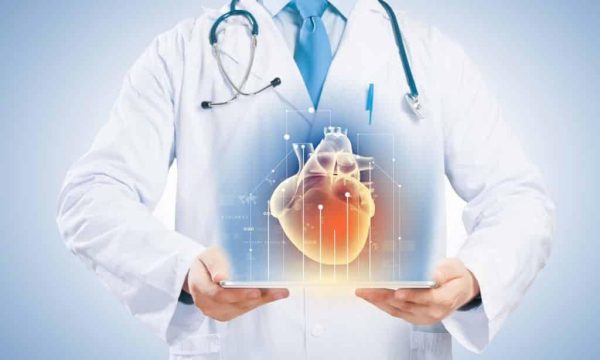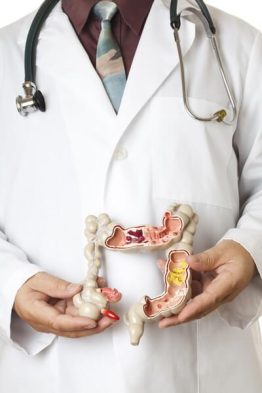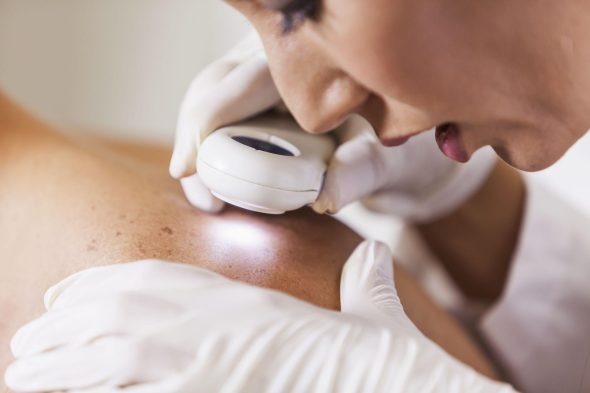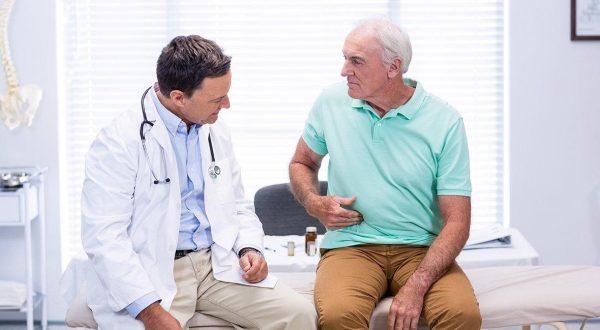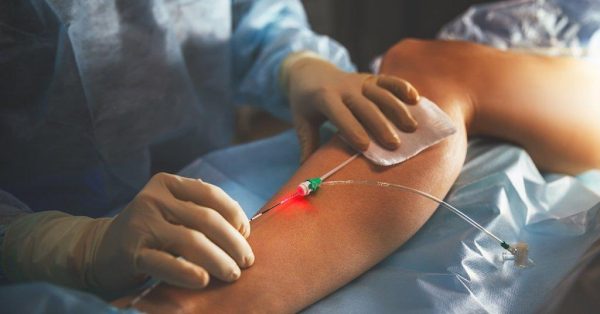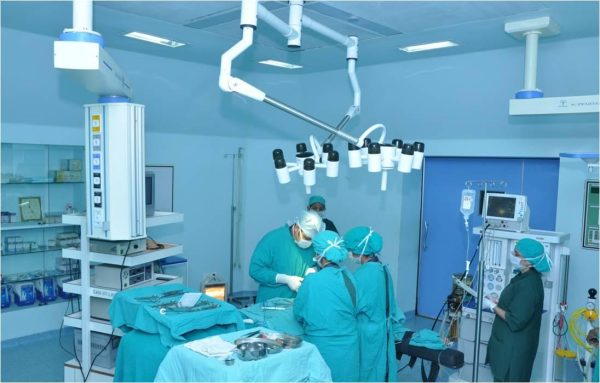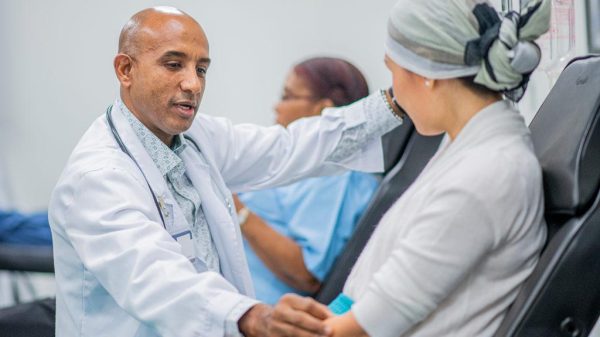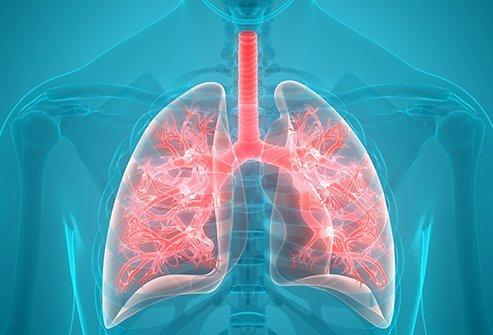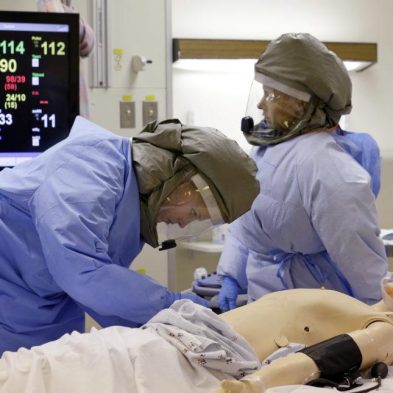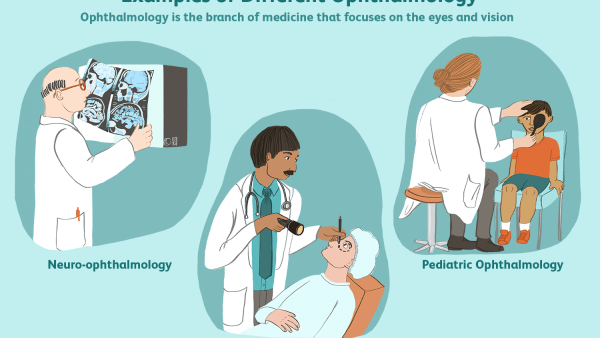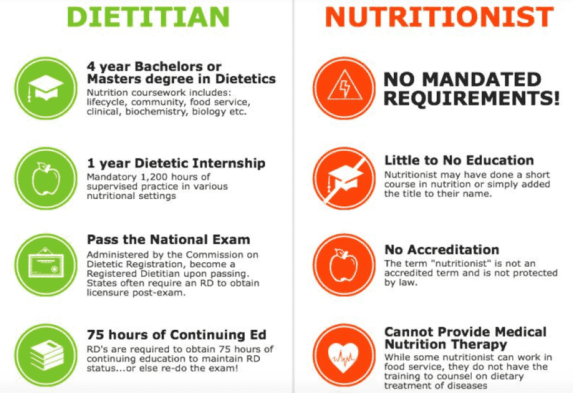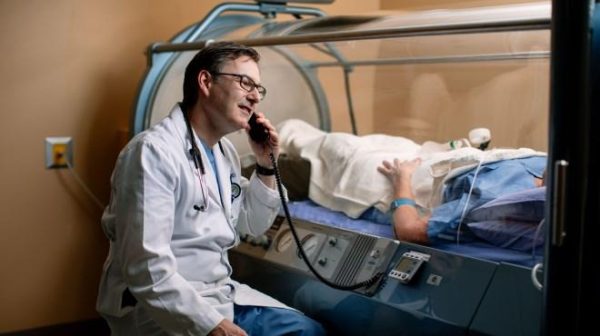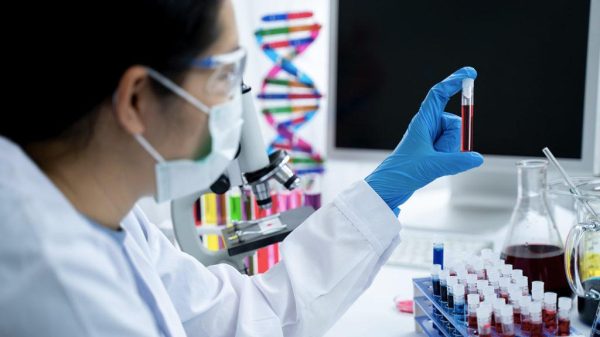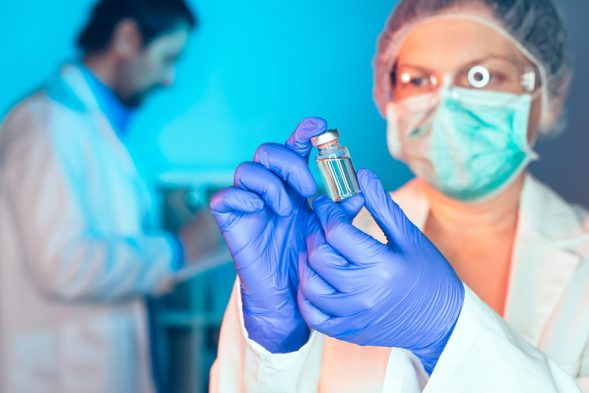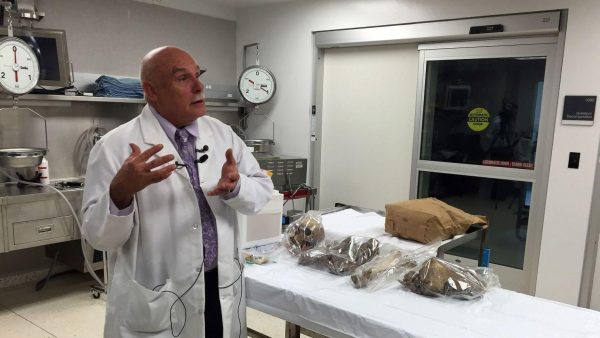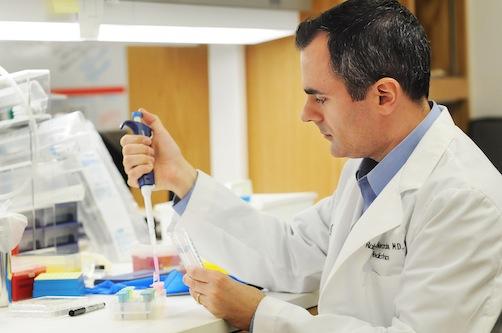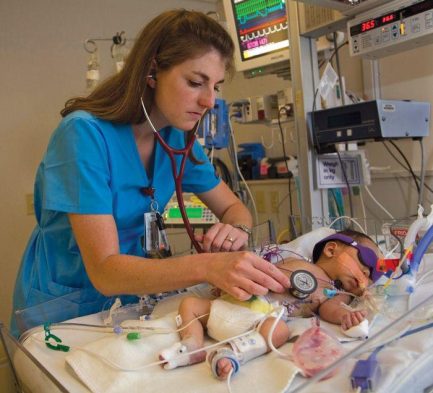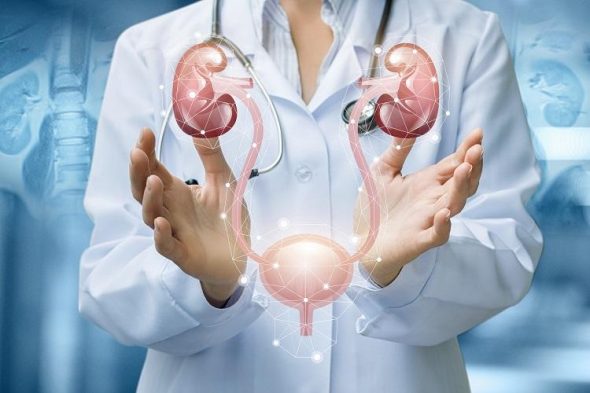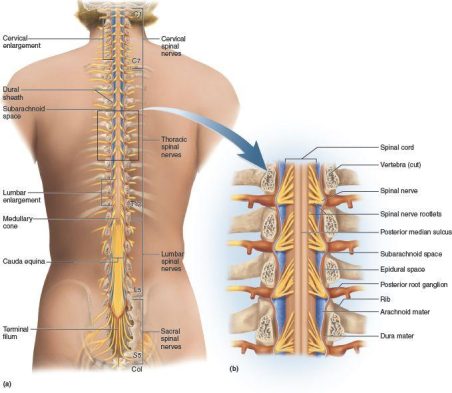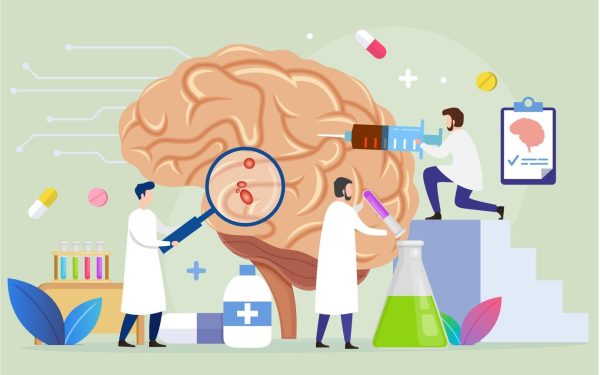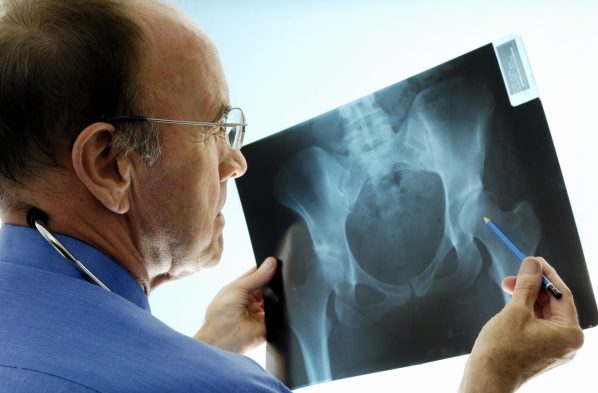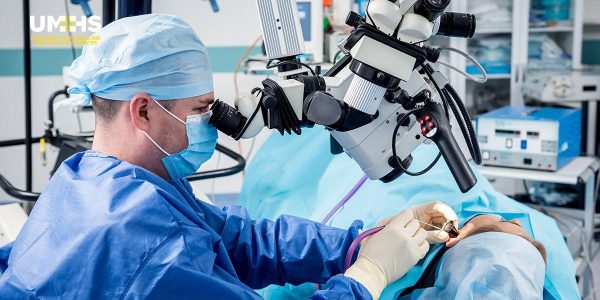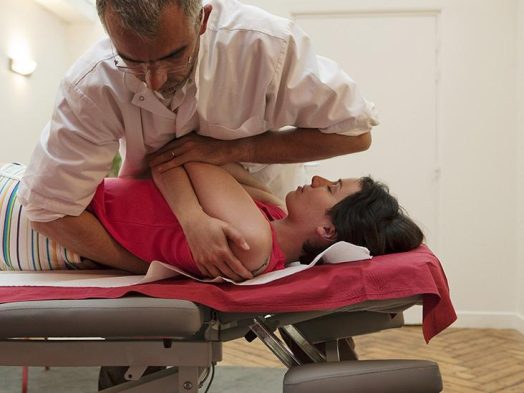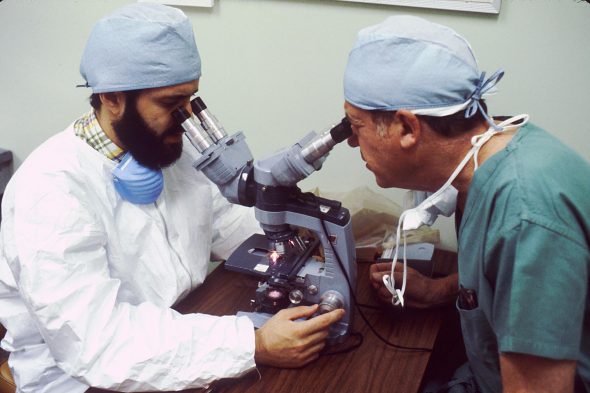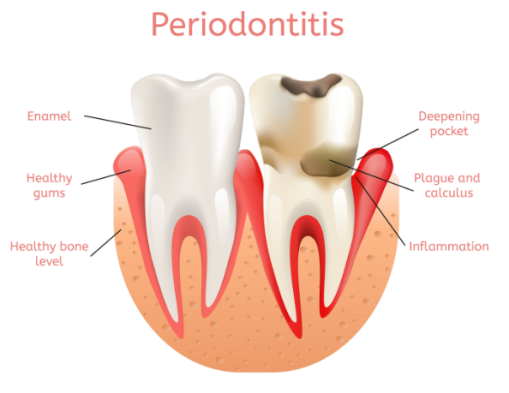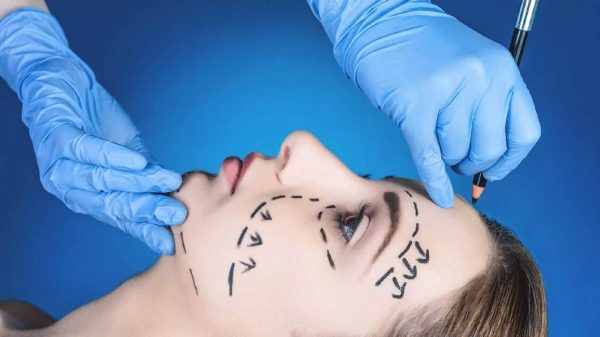In the last century, advances in modern medicine have substantially increased life expectancy. According to Health, United States, 2018, a publication from the National Center for Health Statistics, the average life expectancy in the United States was 47 in 1900. The US Centers for Disease Control and Prevention (CDC) estimates that the average American will live to be 78 years old.
More health care will certainly be necessary as life expectancy rises and the population ages. Indeed, the health-care business is expected to create more employment to the economy over the next decade than any other. Physicians in charge of a wide range of patients and ailments are at the helm.
Continue reading to find out more about the sorts of doctors in great demand. See if any of these fields of medicine pique your interest.
There are a variety of different sorts of physicians, but this list will give you an idea of which ones are most in demand. According to the Doximity US Physician Employment Report 2019, each of the professions listed below is one of the most in-demand specialties. While the data was gathered before the COVID-19 epidemic, the frequency of primary care specializations implies that this list is still relevant.
Different Types of Doctors
It’s important to know what type of doctor you need, which is why we created this list of the most common types so you can find the one that works best for you. Here is the list of all types of doctors that you should know about.
1. Family Physicians
One of the most well-known sorts of doctors is a family physician, who diagnoses and treats illnesses and injuries in the general community. According to the US Department of Labor (DOL), they are the initial point of contact for patients in the healthcare system, according to the US Department of Labor (DOL), and they may send patients to specialists if necessary. According to the Association of American Medical Colleges’ The Complexities of Physician Supply and Demand: Projections From 2018 to 2033, family physicians are among the most required professionals to battle the shortfall of between 21,400 and 55,200 primary care physicians by 2033. (AAMC).
2. Internists
Internists are physicians who diagnose and treat diseases and injuries of the internal organ systems, such as heart disease and diabetes, without resorting to surgery. Internists specialize in the treatment of illnesses of the internal organs and mostly care for adults. Primary care physicians, including internists, are also needed to solve the AAMC’s anticipated primary care shortfall of up to 55,200.
3. Emergency Physicians
Emergency medicine doctors are fast thinkers who can respond quickly to life-threatening or life-threatening circumstances. Emergency room doctors work swiftly to assess patients, establish diagnoses, and stabilise them. More than nearly any other sort of physician, these doctors deal with a wide range of patients and problems. According to a news release accompanying the AAMC physician shortage study, there is an urgent need for more emergency physicians.
4. Psychiatrists
Psychiatrists are doctors who specialize in diagnosing and treating mental, emotional, and behavioral illnesses. To diagnose and treat patients, they perform medical laboratory and psychiatric testing. According to studies, the medical profession may face a mental shortage in the future years as more psychiatrists retire and fewer medical school graduates select psychiatry residencies.
5. Gynecologists and Obstetricians
Obstetricians and gynaecologists (OB/GYNs) are doctors who specialize in female reproductive health. These doctors diagnose and cure illnesses as well as offer care during pregnancy and delivery. According to the AAMC physician shortage study, OB/GYNs are classified as surgical specialists, with a shortfall of up to 28,700 doctors by 2033.
6. Neurologists
Neurologists are doctors that specialize in the diagnosis and treatment of disorders affecting the neurological system, including the brain, spinal cord, peripheral nerves, muscles, and blood vessels. Neurologists treat patients with strokes, Alzheimer’s disease, seizure disorders, and spinal cord diseases, and most of their work is consultative. In the AAMC physician shortage report, these doctors are classified as “Other Specialties.” By 2033, the physician shortage is expected to be between 17,100 and 41,900.
7. Radiologists
Radiologists are doctors who utilize x-rays, radioactive chemicals, sound waves in ultrasounds, or the body’s natural magnetism in MRIs to diagnose diseases in patients. According to the AAMC study, radiologists are classified as part of the “Other Specialties” group, which may be down to 41,900 physicians by 2033.
8. Anesthesiologists
Anesthesiologists are doctors who provide anesthesia and sedation to patients during medical and surgical operations. They are also responsible for providing life support and airway management.
9. Veterinarian
Veterinary physicians are in charge of treating sick animals, whereas all other sorts of doctors are in charge of treating humans. A veterinary doctor (often known as a vet) is a veterinarian who treats animals for diseases, maladies, and injuries (pets and cattle). Veterinarians offer diagnosis, treatment (such as giving medications or conducting operations), and follow-up care. Because animals are unable to communicate, veterinarians rely on clinical symptoms to make their diagnoses.
10. Pediatricians
Pediatricians are doctors that specialize in diagnosing and treating illnesses and injuries in children, adolescents, and infants. Pediatricians specialize in preventative medicine and diagnose common pediatric illnesses, including asthma, allergies, and croup. They might serve as a primary care practitioner or specialize in a sub-specialty. They can also refer you to other professionals if necessary. Opportunities for employment include: According to the AAMC physician shortage report, these practitioners are among the most required primary care physicians.
11. Cardiologists
Cardiologists specialize in the diagnosis, treatment, and management of cardiovascular diseases such as hypertension and arrhythmias. Despite the fact that they are medical professionals, they might also specialize in interventional treatments. Employment prospects: According to the AAMC study, by 2033, there would be a shortage of between 9,300 and 17,800 medical experts, including cardiologists.
12. Allergists/Immunologists
Asthma, eczema, food allergies, insect sting allergies, and certain autoimmune illnesses are among the immune system problems they treat.
13. Anesthesiologists
These doctors provide painkillers or sedate you during surgery, delivery, or other treatments. They keep track of your vital signs while you’re sedated.
14. Colon and Rectal Surgeons
These experts would be consulted if you had issues with your small intestine, colon, or bottom. Colon cancer, haemorrhoids, and inflammatory bowel illness can all be treated with them.
15. Specialists In Critical Care Medicine
They are typically in charge of intensive care units at hospitals, caring for those who are severely ill or injured. If your heart or other organs are failing, or if you’ve been in an accident, you may notice them.
16. Dermatologists
Do you have issues with your skin, hair, or nails? Do you have moles, scars, acne, or allergies to your skin? Dermatologists can assist you.
17. Endocrinologists
These are hormone and metabolism experts. Diabetes, thyroid issues, infertility, and calcium and bone abnormalities are all ailments that they can help with.
18. Emergency Medicine Specialists
In an emergency department, these physicians make life-or-death choices for ill and injured individuals. Their mission is to save lives and to prevent or reduce disability.
19. Gastroenterologists
They specialize in the stomach, intestines, pancreas, liver, gallbladder, and other digestive organs. Abdominal discomfort, ulcers, diarrhea, jaundice, or malignancies of the digestive organs are all reasons to visit them. They also do a colonoscopy and other colon cancer testing.
20. Vascular Surgeon
Vascular surgeons are doctors who specialize in the diagnosis, medication management, and surgical treatment of blood vessel disorders (vascular diseases). Vascular surgery includes procedures on veins (for May-Thurner syndrome and varicose veins), the aorta, carotid arteries, and the iliac, femoral, and tibial arteries in the lower limbs. Vascular surgery also involves dialysis access surgery and transplant surgery in various areas of the world.
21. Thoracic Surgeon
A thoracic surgeon specializes in operations on the chest, heart, and lungs. Thoracic surgeons can specialize further in one area, such as heart or lung surgery, or in a sub-specialty of that field, such as coronary artery bypass surgery. Open-heart surgery, off-pump bypass surgery, robot-assisted heart surgery, Pediatric cardiovascular surgery (children’s heart surgery), lung volume reduction surgery (LVRS), and other thoracic procedures are available.
22. Oncologist
Medical, surgical, and radiation oncology are the three primary disciplines of oncology, which is a specialization of internal medicine. Patients with cancer are treated by oncologists, who treat both the illness and the symptoms it produces. Oncologists frequently participate in clinical studies involving new and experimental therapies for malignancies that might otherwise be fatal. Oncologists go to medical school and then do a residency in oncology. Fellowships in oncology sub-specialties such as pediatric oncology (children’s cancer) and radiation oncology are also available (radiation treatment for cancer).
23. Pulmonologist
The cardio-pulmonary system, which includes the heart, lungs, and other organs involved in the breathing process, is treated by pulmonologists. Pulmonologists may also treat patients with breathing difficulties, severe allergies, lung problems, and other respiratory illnesses in office settings. They may also treat patients in the critical care unit who have lung illness (ICU). An internal medicine residency follows medical school for aspiring pulmonologists. They then go on to pulmonology fellowship training.
24. Infectious Disease Physician
Physicians who specialize in infectious disease address illnesses that are difficult to identify or treat.
They also deal with severe infections including swine flu, avian flu, HIV/AIDS, and other infections. Infectious disease doctors must complete an internal medicine residency before pursuing fellowship study in infectious diseases.
25. Nephrologist
Nephrologists diagnose and treat kidney disease and prescribe dialysis for people who are suffering from renal failure. These doctors enter an internal medicine residency programme after graduating from medical school. Following that, they must complete nephrology fellowship training.
26. Ophthalmologist
Ophthalmologists are specialists who specialize in eye illnesses and disorders such as cataracts and glaucoma. An ophthalmologist can help with vision correction that an optometrist can’t manage. Ophthalmologists can also conduct eye surgery if necessary. Ophthalmologists go to medical school and then complete an ophthalmology residency. They are not obligated to participate in a fellowship, but many opt to do so in order to learn more about certain eye illnesses or surgical techniques.
27. Sports Doctor
Sports medicine specialists are medical physicians who have received additional training in the treatment of patients who have suffered injuries to their bones, muscles, joints, tendons, or ligaments as a result of physical exercise (such as Sports). Cartilage tears, ligament ruptures in the knee, and shoulder, knee, and wrist issues are among the ailments.
28. Surgeon
Surgeons devote time to designing a surgical operation, conducting the treatment in the operating room, and then following up to detect any problems and certify the procedure’s effectiveness. Surgeons might specialize in general surgery or more specific fields like hand surgery, pediatric surgery, or vascular surgery (related to blood flow problems). A surgeon’s training generally lasts several years longer than that of a primary care physician. General surgeons must complete a three- to five-year residency programme after graduating from medical school. They will do a fellowship or internship in a surgical department after being board certified.
29. Physician Executive
Some doctors don’t actually practice medicine. Instead, they work in positions of leadership in health-care policy, pharmaceutical research, and insurance businesses. Non-clinical doctors must typically have completed medical school and residency. They must also keep their medical licence current.
30. Podiatrist
Podiatrists are medical doctors who specialize in the foot and lower limbs. They help patients stay active and pain-free by treating and managing pain, illnesses, and injuries. Bunions, for example, are a frequent problem that podiatrists may help with. They can also assist with long-term problems or injuries.
31. General Practitioner
A general practitioner is qualified to treat patients of any gender or age. Primary care doctors (PCPs) are general practitioners who visit their patients on a regular basis and are familiar with their medical histories. Most people visit a PCP at least once a year (or should). When you believe anything else is wrong, go to your PCP first because they’re in charge of your entire health and well-being. They will then be able to recommend you to the appropriate professional.
32. Rheumatologist
A rheumatologist is a specialist in joint, muscle, and bone internal medicine. An orthopedist, another expert on our list, also deals with joints, muscles, and bones, but a rheumatologist is different since they focus on the source of the disease as well as the body’s general mobility and health. Orthopedists specialize in treating more severe pain and injuries. We’ll go over orthopedists in greater detail later. One of the most common reasons to see a rheumatologist is for arthritis, but they also help people with tendonitis, lupus, gout, and other chronic pain conditions.
33. Urologist
A urologist is a doctor who specializes in the urinary system’s function and treatment. If your primary care physician suspects you have signs of a urinary tract infection, such as frequent urination, they will send you to a urologist. Urologists frequently collaborate with other doctors to treat diseases; for example, a urologist may work with an oncologist to treat prostate or bladder cancer.
34. Dietitian
Dietitians, often known as dietitians, are experts in human nutrition and diet control. A nutritionist recommends nutrition based on a patient’s medical problems (such as eating disorders) and personal requirements. Students interested in becoming dietitians should pursue medical degrees and earn licensure to analyses, diagnose, and treat nutritional problems.
35. Geriatrician
A geriatrician is a doctor who specializes in the care of senior citizens. The elderly require special attention due to their deteriorating immunity, which occurs as a result of senility and their various health issues. The fundamental distinction between geriatrics, which is concerned with the care of the elderly, and gerontology, which is concerned with the study of the ageing process. Within Geriatrics, there are many sorts of geriatricians based on the disorders that affect the elderly.
36. Hyperbaric Physician
Hyperbaric physicians/professionals are medical doctors who have received training in hyperbaric medicine, which includes administering hyperbaric oxygen (HBO) therapy for diseases such as decompression sickness and carbon monoxide poisoning from fire fumes. Hyperbaric medicine refers to the use of hyperbaric oxygen at atmospheric pressure to enhance oxygen flow in the body.
37. Hematologist
A haematologist is a doctor who specializes in the field of haematology, which is the study of blood, blood-forming organs, and disorders of the blood (sickle cell). Hematologists specialize in the treatment of blood diseases and cancers, including haemophilia, leukaemia, lymphoma, and sickle-cell anaemia.
38. Immunologist
An immunologist is a doctor who researches and examines the body’s immune system’s physiological processes and activities. This knowledge is subsequently used to diagnose and treat a variety of illnesses that impact the aforementioned system.
39. Intensivist
An intensivist is a clinician who specializes in educating and treating severely sick patients in intensive care units (ICUs) (Intensive Care Unit). Internal medicine experts (most commonly pulmonologists), anesthesiologists, emergency room doctors, paediatricians, and surgeons are all examples of intensive care specialists. A critical care physician or critical care medicine specialist is another term for them.
40. Internal Medicine Specialist
Internal medicine specialists, often known as internists, specialize in the non-surgical care and treatment of chronic adult diseases such as pain relievers and anaesthetics. Internists generally specialize on illnesses affecting specific organs or organ systems. To provide their services, they mainly work in hospitals.
41. Oral Surgeon
Dentists that specialize in mouth and jaw surgery are known as maxillofacial surgeons. After an accident or surgery, maxillofacial surgeons specialize in treating and repairing the face, head, and neck regions. Dentoalveolar surgery, bone-fused dental implants, aesthetic surgery of the head and neck, and corrective jaw surgery are among the procedures.
42. Medical Examiner
A medical examiner is a government-appointed doctor with expertise in forensic pathology and autopsies. The medical examiner investigates fatalities as specified by federal, state, and municipal rules and laws that are vital to the public’s health and welfare. Other than natural reasons such as sudden and unexpected deaths, these medical examiners analyse autopsy records to determine the specific cause of death.
43. Geneticist
A medical geneticist is a doctor who specializes in general medicine, genetic diagnosis, and the treatment of people who have genetic diseases. They treat patients using a comprehensive molecular and clinical strategy that includes molecular genetics, cytogenetics, and biochemical testing.
44. Neonatologist
A neonatologist is a paediatrician who specializes in the medical treatment of newborn infants, especially severely sick preterm and full-term newborns. Neonatologists also function as general paediatricians, caring for ICU-born newborns who require immediate medical attention. Some neonatologists, particularly those who work in educational settings, may continue to monitor newborns for months or even years after being discharged from the hospital to better assess the long-term impact of health issues that occur early in life.
45. Nephrologist
Nephrologists are medical specialists that specialize in the diagnosis and treatment of kidney and urinary system disorders, such as kidney inflammation, renal biopsy, dialysis, chronic kidney disease, and cancer. Pediatric nephrologists are nephrologists that specialize in treating children.
46. Spinal Cord Specialist
Rehabilitation medical physicians who specialize in the diagnosis and treatment of patients with spinal cord injuries are known as spinal cord injury specialists. The functions of the spinal cord are altered either temporarily or permanently as a result of a spinal cord injury (loss of muscle function, sensation loss, pressure sores, infections or breathing problems). The majority of spinal cord injuries are caused by physical trauma, such as vehicle accidents, gunshot wounds, falls, or sports-related injuries.
47. Neurosurgeon
Neurosurgeons are licenced to operate and perform surgeries on the patient’s brain, unlike neurologists, who diagnose and treat nervous system diseases. Vascular neurosurgery, stereotactic neurosurgery, skull base surgery, spinal neurosurgery, peripheral nerve surgery, oncological neurosurgery, and paediatric neurosurgery are some of the sub-branches of neurosurgery.
48. Nuclear Medicine Specialist
Nuclear medicine specialists are doctors who use radioactive medicines to diagnose and treat specific conditions, such as bone scans, lung perfusion scans, and HIDA scans for gallbladder function. Brain perfusion & glucose metabolic imaging, blood pool imaging, gastric emptying studies, hepatobiliary imaging, lymphoscintigraphy, parathyroid imaging, pulmonary perfusion & ventilation imaging, renal function imaging, thyroid imaging, thyroid whole body imaging, urinary tract imaging, and white blood cell studies are some of the common nuclear medicine procedures.
49. Occupational Medicine Specialist
A medical doctor specializing in providing continuous care for injured workers and assisting them in returning to work is an occupational medicine (OM) specialist. They also assist businesses in maintaining a safe and healthy workplace. Occupational medicine physicians work to ensure that the highest occupational health and safety levels are met and maintained in the workplace. In addition, occupational medicine specialists are involved in other disciplines such as the prevention of illness (such as the flu by administering flu vaccines), injury, and disability at work.
50. Ophthalmologist
Ophthalmologists, unlike optometrists, who are also “eye doctors,” can perform surgeries on the eyes. They are also considered medical and surgical specialists because they can perform operations on the eyes. Cataract, Glaucoma, Macular degeneration, Diabetic retinopathy, dry eyes, Strabismus, Proptosis, Uveitis, Eye tumors, Refractive surgery, and other eye diseases are diagnosed by ophthalmologists. Ophthalmology has subspecialties that specialize in specific eye diseases.
51. Orthopedic Surgeon
Orthopedic surgeons (also known as orthopedists) are doctors who specialize in diagnosing, treating, and operating on patients with musculoskeletal diseases and injuries.
52. Otolaryngologist (Aka Ent Specialist)
An otolaryngologist (ENT) is a specialist in managing and treating patients with disorders of the ear, nose, and throat. They can also diagnose diseases that affect related structures, such as the head and neck.
Head and neck oncologic surgery, facial plastic and reconstructive surgery, otology-neurotology, rhinology & sinus surgery, laryngology & voice-related disorders, paediatric otorhinolaryngology, and sleep medicine are some of the subspecialties within Otolaryngology.
53. Osteopath
A medical doctor who specializes in osteopathic medicine is known as an osteopath (or osteopathic physician). Osteopaths work to improve people’s overall health and wellness by treating them as a whole person rather than treating a specific condition or disease. An osteopath can use osteopathic manipulative medications and focus on stretching, massaging, and moving the musculoskeletal system to relieve pain and improve blood and lymphatic fluid circulation.
54. Palliative Care Specialist
Palliative medicine is a sub-specialty of internal medicine that helps patients with chronic, curable, or life-threatening diseases find relief and improve their quality of life. Physicians are sometimes referred to as palliative care specialists when they provide palliative therapies with no curative intent (as is often the case in late-stage cancers). If a medicine or therapy relieves symptoms but does not heal the underlying disease or cause, it is said to have a palliative effect.
55. Parasitology
Parasitologists deal with parasites (microorganisms such as bacteria, viruses, worms, and insects) that can live on or inside the human body for a short or long time. Parasitologists apply concepts from cell biology, bioinformatics, biochemistry, molecular biology, immunology, genetics, evolution, and even ecology to their work. There are also subdisciplines within parasitology, such as medical/human parasitologists who study parasites in humans, and veterinary parasitologists who study parasites in cattle and pets.
56. Pathologist
A pathologist is a medical doctor who performs autopsies and produces a pathological report after examining tissue (such as a mole) and blood samples to diagnose a disease. A pale pathologist is a physician who specializes in the study of ancient diseases. When a crime scene is involved, a forensic pathologist is a medical doctor who performs autopsies to determine the cause of death.
57. Perinatologist
A perinatologist is a doctor who specializes in the care of the foetus as well as complicated, high-risk pregnancies. Perinatology is also called maternal-fetal medicine. Pregnant women with chronic medical conditions such as heart disease, high blood pressure (hypertension), diabetes, or thrombophilia are given special attention by these doctors. Preterm labor, twin/triplet pregnancies, pre-eclampsia, and other pregnancy-related complications will be addressed.
58. Periodontist
A periodontist is a board certified specialist who specializes in dental health care. A periodontist can also diagnose and treat periodontal disease (gum disease) and help with dental implant placement. P. gingivalis, T. forsythia, and T. denticola are all periodontal diseases. Untreated may lead to alveolar bone loss and tooth loss. One must earn a dental degree before applying for the postgraduate training programme in periodontology.
59. Paediatrician
A paediatrician is responsible for the physical, emotional, behavioral, and mental well-being of their young patients. Pediatricians specialize in the care of babies, children, teenagers, and young adults. The paediatricians who treat teens frequently known as Adolescent medicine expert. A developmental paediatrician treats children with conditions such as autism, cerebral palsy, Down syndrome, ADHD, and behavioral disorders.
60. Physiatrist
A physiatrist is a medical professional specializing in helping patients restore function following trauma such as a stroke or surgery. In treating these patients, physiatrists lead a group of physical, occupational, recreational and speech therapists, nurses, psychologists (for counselling), and other social workers to aid with the speedier recovery.
Physical medicine and rehabilitation (PMR), also known as physiatry or rehabilitation medicine, aims to improve and restore functional ability and quality of life in patients suffering from physical impairments affecting the brain, spinal cord, nerves, bones, joints, ligaments, muscles, and tendons. The additional subspecialties of physiatrist include neuromuscular medicine, pain medicines, paediatric rehabilitation medicine, spinal cord injury, sports medicine, brain damage (stroke), and palliative care.
61. Plastic Surgeon
Plastic surgeons are specialist medical physicians in surgery that enhance a person’s outlook such as surgery for a birth deformity (e.g., cleft palate), or surgery following an injury or the removal of cancer, such as breast implant surgery after breast removal (mastectomy) (mastectomy). The sub-specialties of plastic surgery include Aesthetic surgery (cosmetics), burn surgery (fire wounds), Craniofacial surgery (congenital abnormalities), hand surgery (congenital malformations), microsurgery (breast reconstruction), and Pediatric plastic surgery (birth defect repairs) (birth defect corrections).
62. Sleep Doctor/Sleep Disorders Specialist
A sleep doctor is a medical practitioner who specializes in the diagnosis and treatment of sleep disorders including Obstructive Sleep Apnea (OSA). Obstructive sleep apnea (OSA), central sleep apnea (CSA), and mixed sleep apnea are the three forms of sleep apnea. Overweight, allergies, a narrow airway, and swollen tonsils are all risk factors for OSA. Other sleep-related problems treated by a sleep doctor include insomnia, restless legs syndrome, periodic leg movement disorder, narcolepsy, circadian rhythm disorder, and others.


